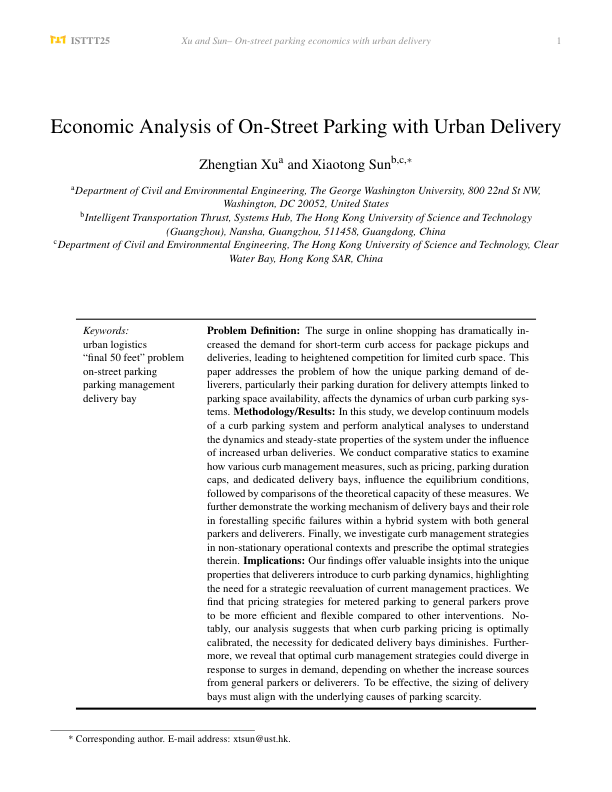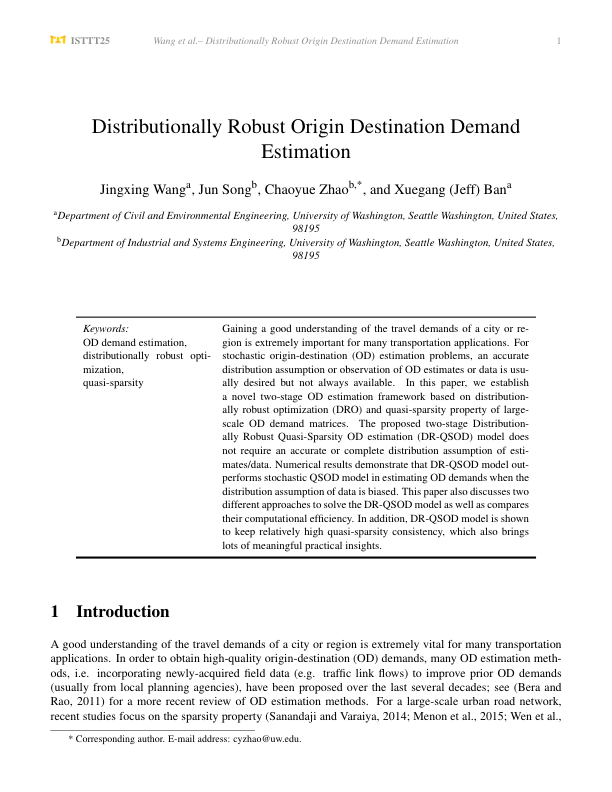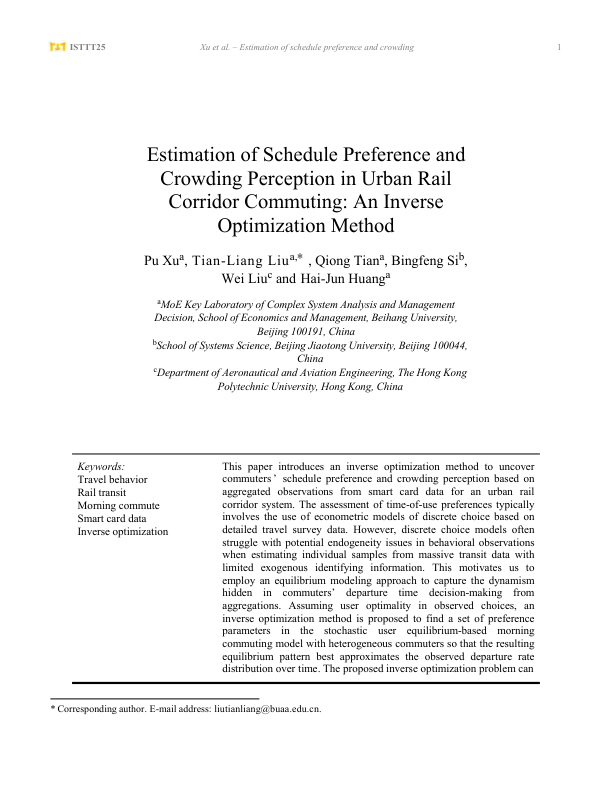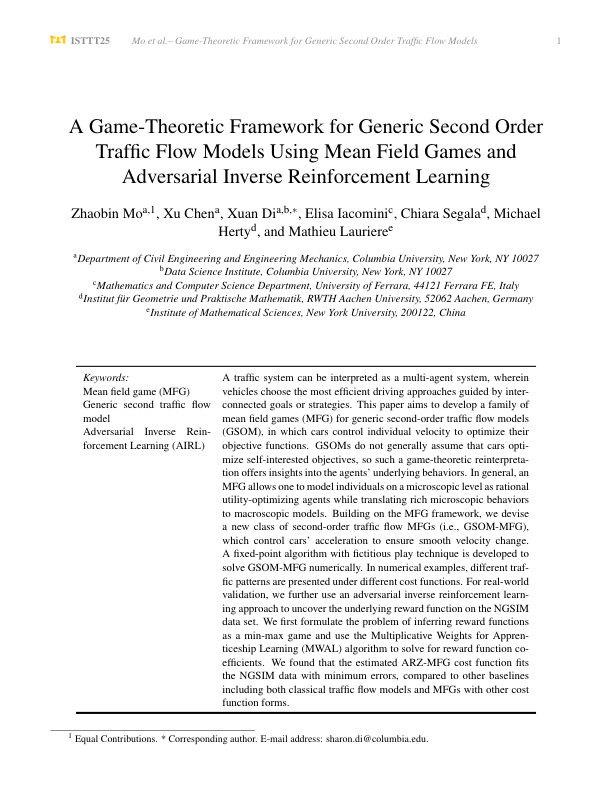Podium Session 2: Economic Analysis of On-Street Parking with Urban Delivery
Title: Economic Analysis of On-Street Parking with Urban Delivery
Authors: Zhengtian Xu, Xiaotong Sun
Abstract: Problem Definition: The surge in online shopping has dramatically increased the demand for short-term curb access for package pickups and deliveries, leading to heightened competition for limited curb space. This paper addresses the problem of how the unique parking demand of deliverers, particularly their parking duration for delivery attempts lin...
Keywords: Urban logistics; “Final 50 feet” problem; On-street parking; Parking management; Delivery bay






